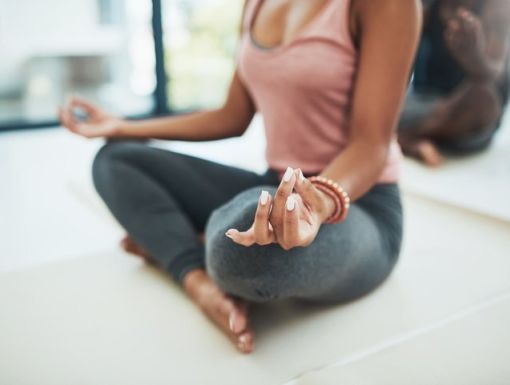
Why Am I Having Weird Dreams Right Now?
Have your dreams been strange lately? Dream analysis and interpretation have become one of the de facto hobbies of the coronavirus quarantine, along with baking bread and doing puzzles. Some of you may have noticed recently that your dreams feel more vivid or intense, and the large uptick in searches related to weird dreams indicates that you are not alone.
How Do Dreams Work?
For a long time, scientists and medical professionals believed that the brain was essentially inactive during sleep. In 1953, a sleep study performed by a team of Chicago researchers linked the REM (rapid eye movement) phase of sleep to periods of intense dreaming when study participants were awakened during this state. Eventually, other researchers observed that the level of brain activity during the REM sleep phase resembled the level of activity of a brain when it is awake. Sleep scientists coined the term paradoxical sleep to describe the similarities between the dreaming and awake states. Later on, researchers also connected REM sleep deprivation to unpleasant health side effects like anxiety, difficulty concentrating, weight gain, irritability and a decline in motor coordination.
Today, we know that getting an adequate amount of good sleep each night is vital to our overall health. While we sleep, our brains cycle through periods of non-REM sleep, or what some sleep experts also call quiet sleep, and REM sleep.
There are different theories about why humans dream, with some experts suggesting it is a random side effect of the neural activity happening in the brain during the REM phase. Others believe that dreaming is connected to our emotional health — providing the brain a way to deconstruct memories, respond to visuals and emotions we experienced during the day, and solve the problems we subconsciously have. Despite the different opinions about why humans dream, we do know that dreaming and the REM state play a big role in the quality of sleep we get each night.
Why Have My Dreams Been So Weird Lately?
While everyone dreams, some people do not always remember their dreams when they wake up. Dreams are shaped by several things, including things that happen in your day-to-day life, as well as the media content and advertising you see. You may have multiple rounds of dreams each night and can experience a variety of emotions during your dreams.
Under regular circumstances, struggles with sleep during uncertain or difficult situations are normal. The big life changes that we process during the day can also effectively stir up one's subconscious while asleep. The “new normal” we are collectively experiencing in response to the coronavirus (COVID-19) pandemic certainly qualifies as one such big life change.
There have been several theories floated about why our dreams feel so much stranger or more intense post-COVID-19. One is that the necessity of social distancing has led to a lack of daily inspiration, due to the withdrawal from our typical routine and environments. We are seeing more of one environment or one group of people, and our brains are responding by digging deeper into our memories for dream content.
Other scientists have proposed that our new routines mean we are spending more time sleeping, and so we are dreaming more often. Since our periods of REM sleep increase in duration throughout the night, the more time we spend asleep, the more likely some will remember dreams that they otherwise would have forgotten. A study published in 2014 connected bad dreams in older adults to generalized anxiety disorder, which some health experts have used to explain the uptick in negative dreams we are experiencing during this stressful moment. The combination of higher levels of daily anxiety and more time spent asleep could be responsible for the uptick in strange or bizarre dream scenarios.
Is there a silver lining in all of this? Right now, it's hard to say. We are still in the early stages of understanding the true impact that the coronavirus will have on our world and that creates a lot of uncertainty that will manifest itself in different ways for different people. It seems inevitable that our dreaming selves would be touched by these seismic shifts in our personal lives, whether it's because of physiological reasons or emotional ones.
The important thing to remember is that sleep is one of your best weapons against poor health. We all need to take responsible steps to keep ourselves physically and emotionally fit and maintain a regular sleep schedule, which is something most people have direct control over.
Poor sleep has been tied to decreased immune function, meaning that when we don't get proper sleep, we are more likely to get sick. Here are some suggestions for how to get more sleep, as well as for which non-prescription sleep aids may help you. Rest well, wherever you are.
For the Latest Updates from Ochsner on COVID-19, visit Ochsner.org/coronavirus
The information in this blog post is accurate at the time of publication. However, as the situation surrounding COVID-19 continues to change, it's possible that information has changed since being published. While Ochsner Health is trying to keep our blog posts as up-to-date as possible, we also encourage readers to stay informed on news and recommendations by using the CDC website.



